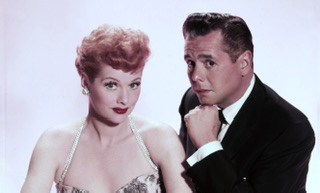
The continuing international migration has moved to center stage in political, policy, and discussions around the globe, it is important to have a sense of what exactly these conversations are about. Simply put, our forefathers were all immigrants. No matter if an individual has taken citizenship, served in the military, or married a native, we will forever be international migrants.
As an immigrant child, Ricky Ricardo was my first media role model. Desi Arnaz reportedly arrived in the USA in 1934 as a teenager, long before Castro took over the island. His father was the mayor of Santiago, but he escaped to Miami after the fall of President Gerardo Machado. In five years in Miami, Desi attended a private Catholic high school.
His family's Miami address was 27 NW 10th Ave., but today there is no plate indicating that. Desi had several jobs until he was finally hired in clubs in Miami Beach and the rumba trend began that took him to NYC, New York, and Hollywood, California. But for me, it was never “Little Havana Desi.” He simply never publicly aligned himself with Miami Cuban politics, even though he was a lifelong Republican like many exiles. Other artists have done the same. But in one of his last television appearances, Desi delivered a veiled jab at Castro's Cuba. It was produced in 1983 on the David Letterman show, three years before his death. That night Desi couldn't have been more Cuban. He had a Cuba patch in the pocket of the jacket that he had presented to him during the Miami carnival, he smoked a Cuban cigar and he got up and sang an old Irving Berlin song: “I see you in Cuba”.
https://www.youtube.com/watch?v=5u6-LgExBjQ&t=2s
A medida que la migración internacional se ha trasladado al centro del escenario en los debates políticos, políticos y públicos en todo el mundo, es importante tener una idea de qué tratan exactamente estas conversaciones. En pocas palabras, nuestros antepasados eran todos inmigrantes. No importa si una persona ha tomado la ciudadanía, sirvió en el ejército o se casó con un nativo, siempre seremos migrantes internacionales. Como niño inmigrante, Ricky Ricardo fue mi primer modelo a seguir en los medios.
Desi Arnaz se dice qué había llegado a USA en 1934 cuando era un jovencito, mucho antes de que Castro se apoderara de la isla. Su padre era el alcalde de Santiago, pero escapo a Miami después de la caída del presidente Gerardo Machado. En sus cinco años en Miami, Desi asistió una escuela secundaria católica privada. La dirección de la familia en Miami era 27 NW 10th Ave., pero hoy no hay una placa que lo indique. Desi tuvo varios trabajos hasta que al fin lo contrataron en clubs de Miami Beach y comenzó la moda de la rumba que lo llevaron a Nueva York, Hollywood California.
Pero para mí, nunca fue “Desi de La Pequeña Habana.” Simplemente, nunca se alineó públicamente con la política cubana de Miami, a pesar de que fue un republicano de toda la vida como muchos exiliados. Otros artistas han hecho lo mismo. Pero en una de sus últimas apariciones en televisión, Desi dio un golpe velado a la Cuba de Castro.
Se produjo en 1983 en el programa de David Letterman, tres años antes de su muerte. Esa noche Desi no pudo haber sido más cubanaso. Llevaba un parche de Cuba en el bolsillo de la chaqueta que le había presentado durante el carnaval de Miami, fumaba un tabaco cubano y se levantó y cantó una canción vieja de Irving Berlin: “Te Veo en Cuba”.
https://www.youtube.com/watch?v=6zJMlFUjLWI
https://www.google.com/search?q=ricky+rirado&rlz=1C5CHFA_enUS712US712&o…
Links
Topic